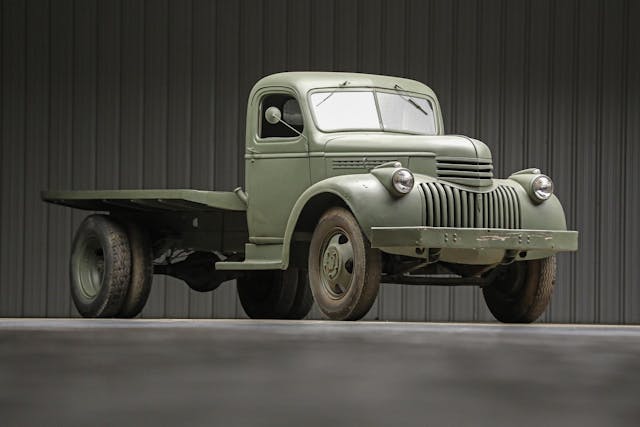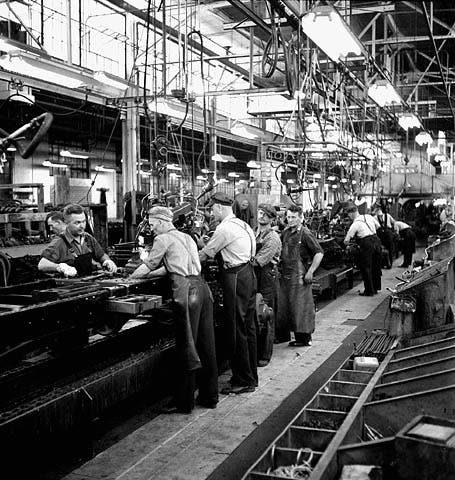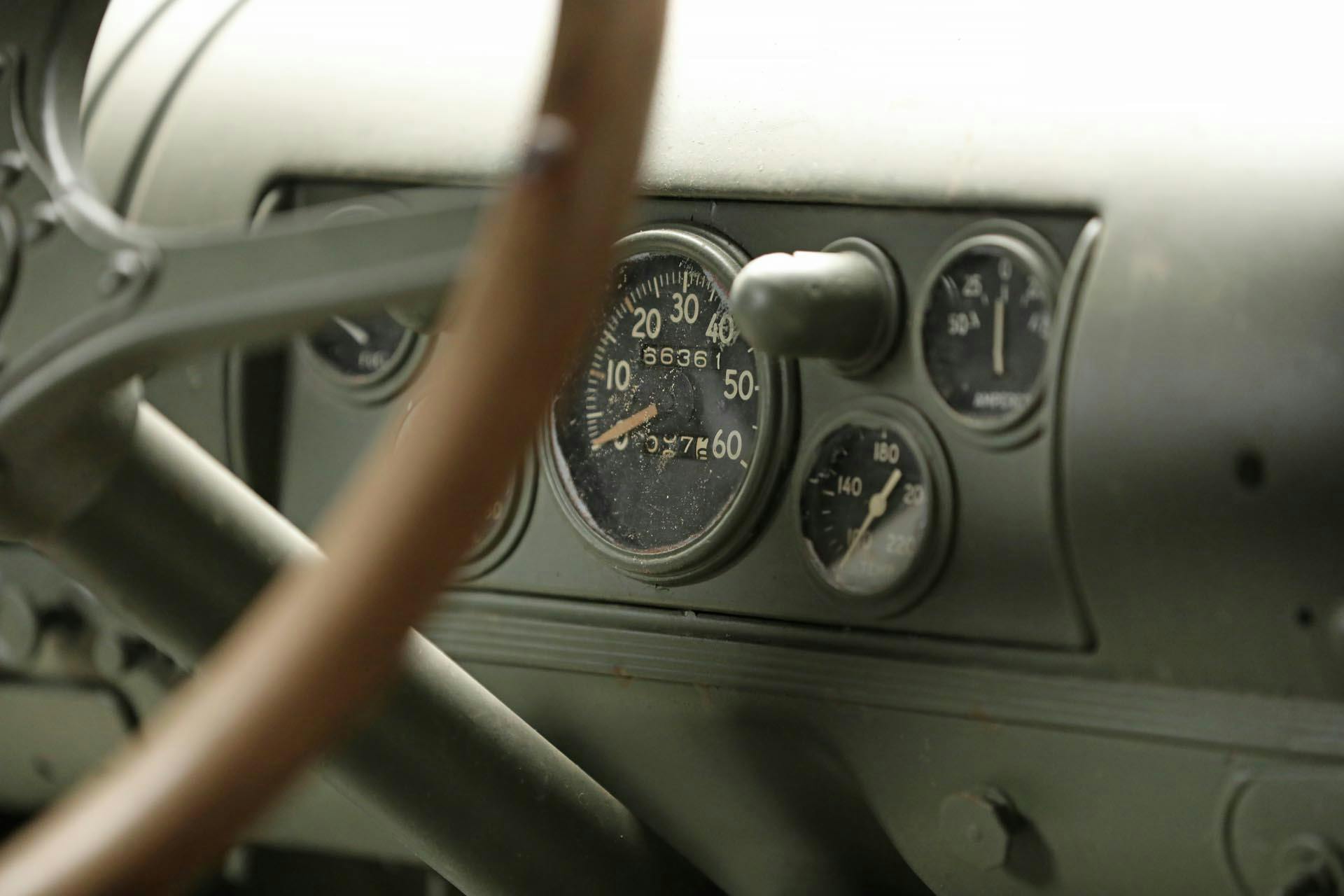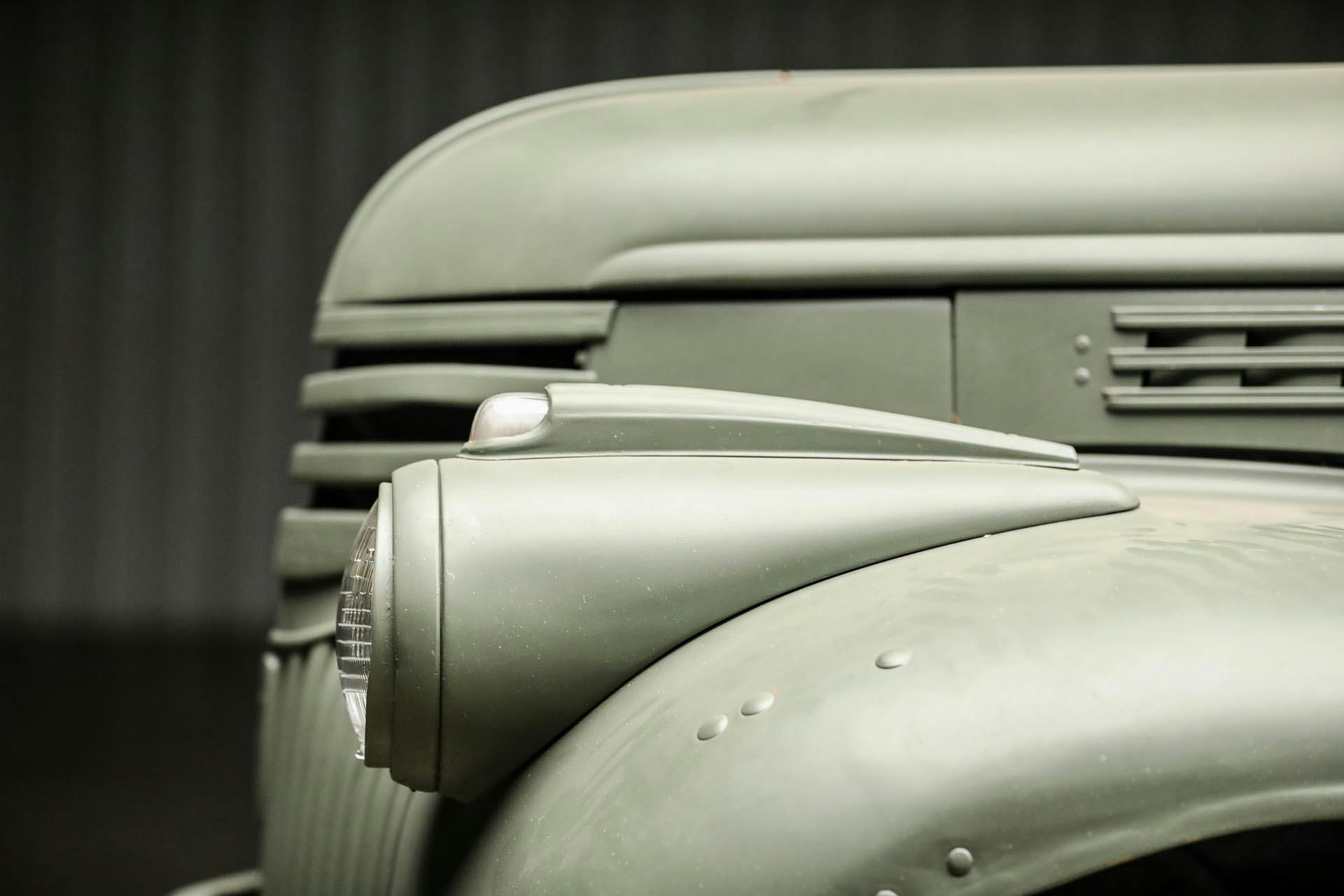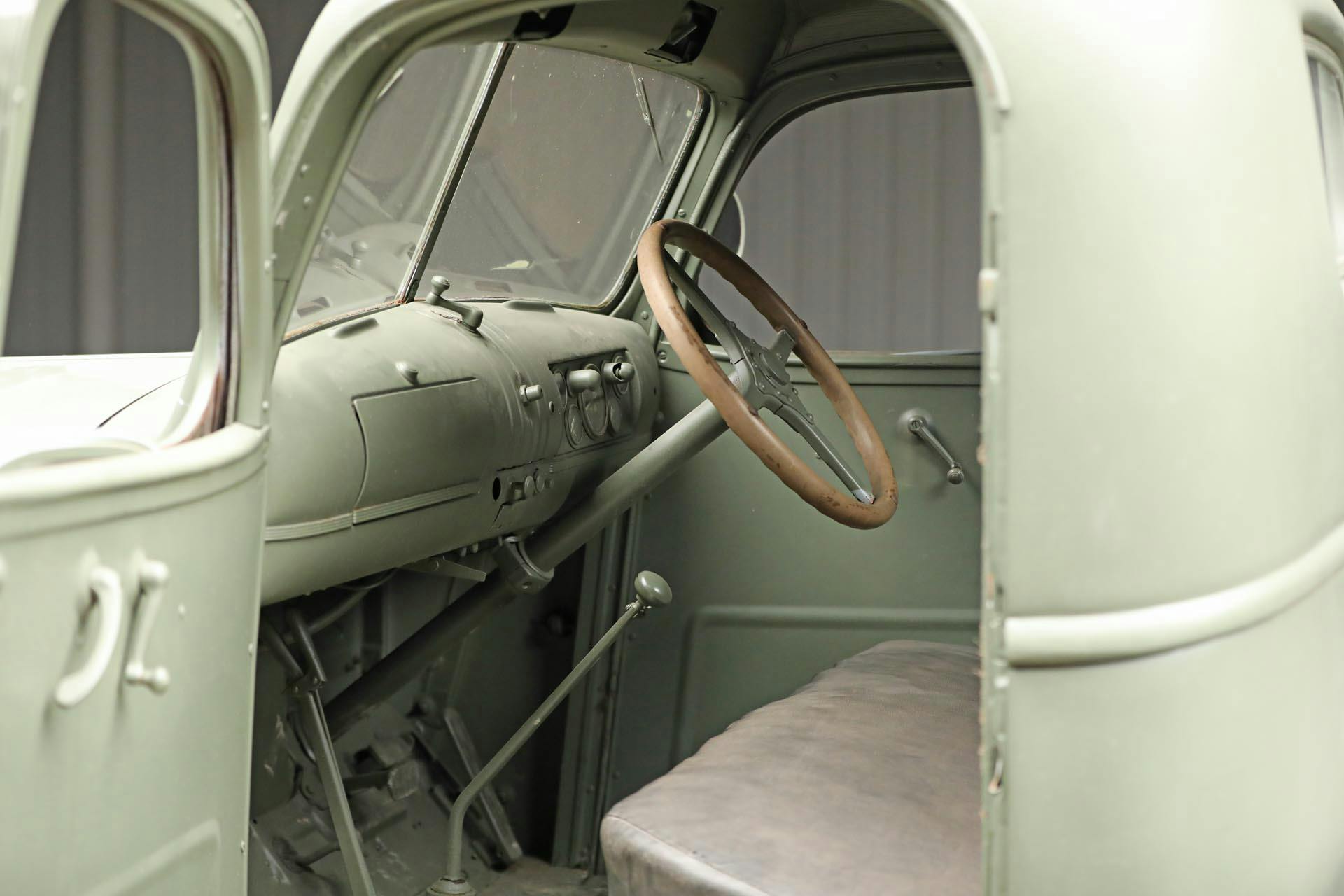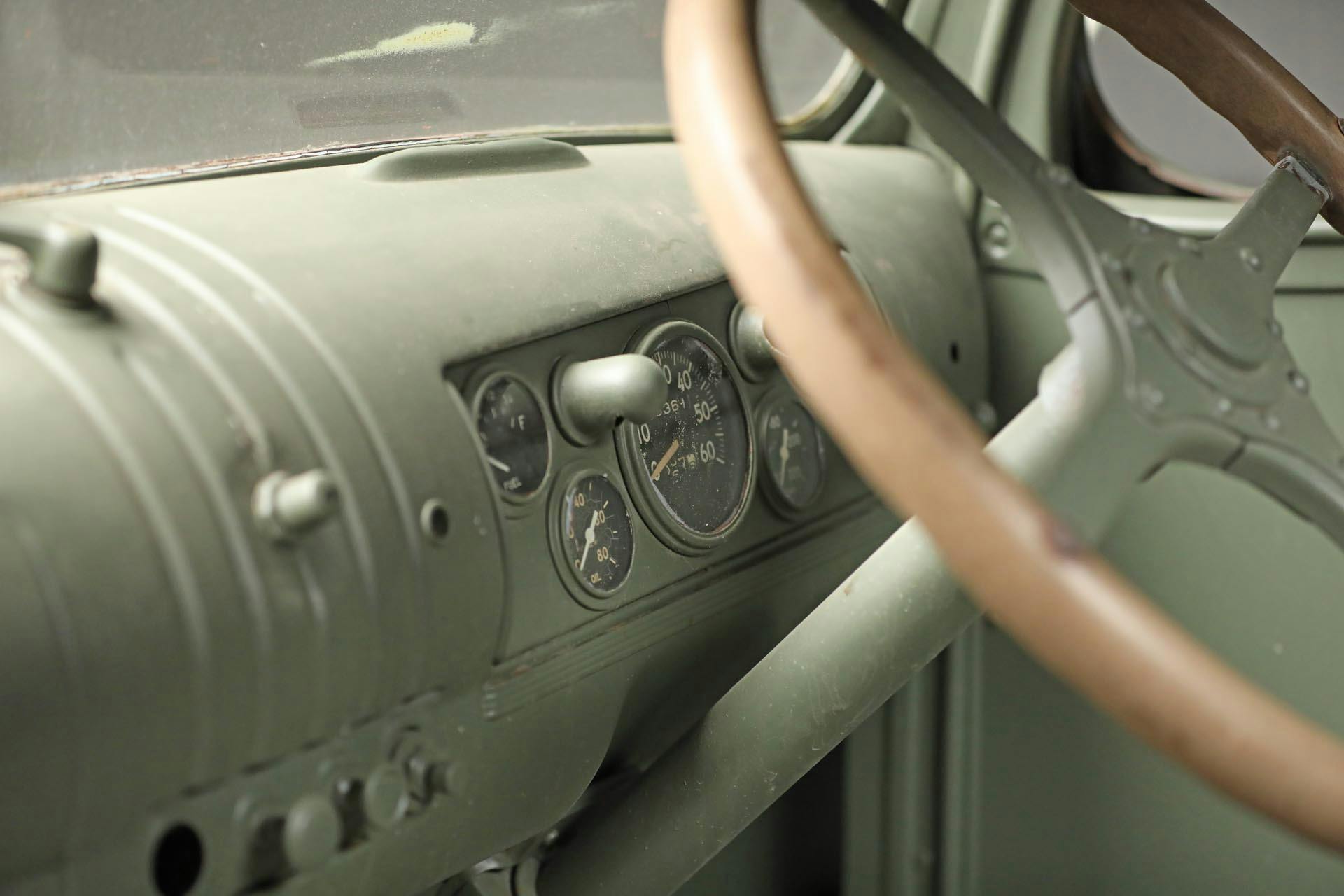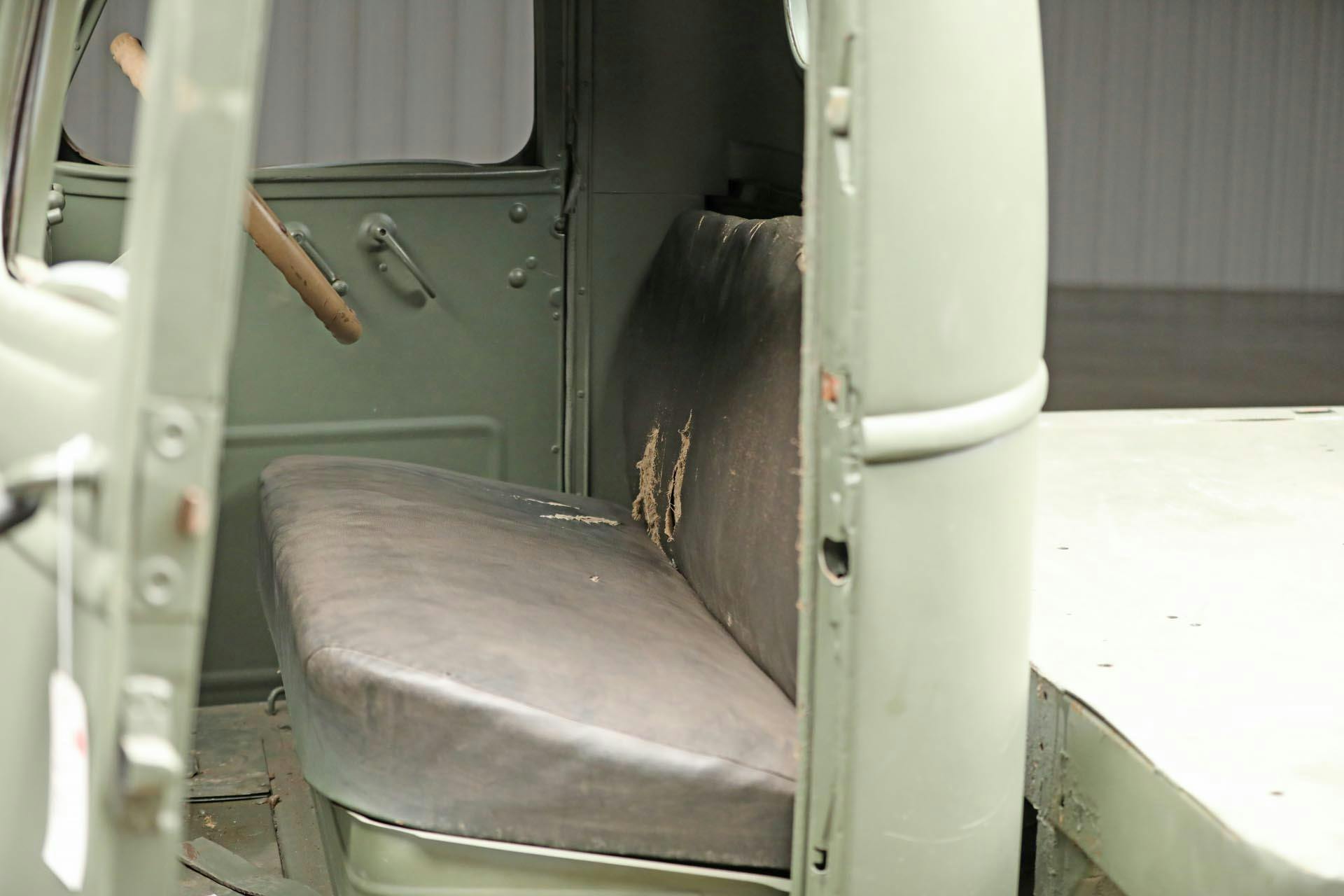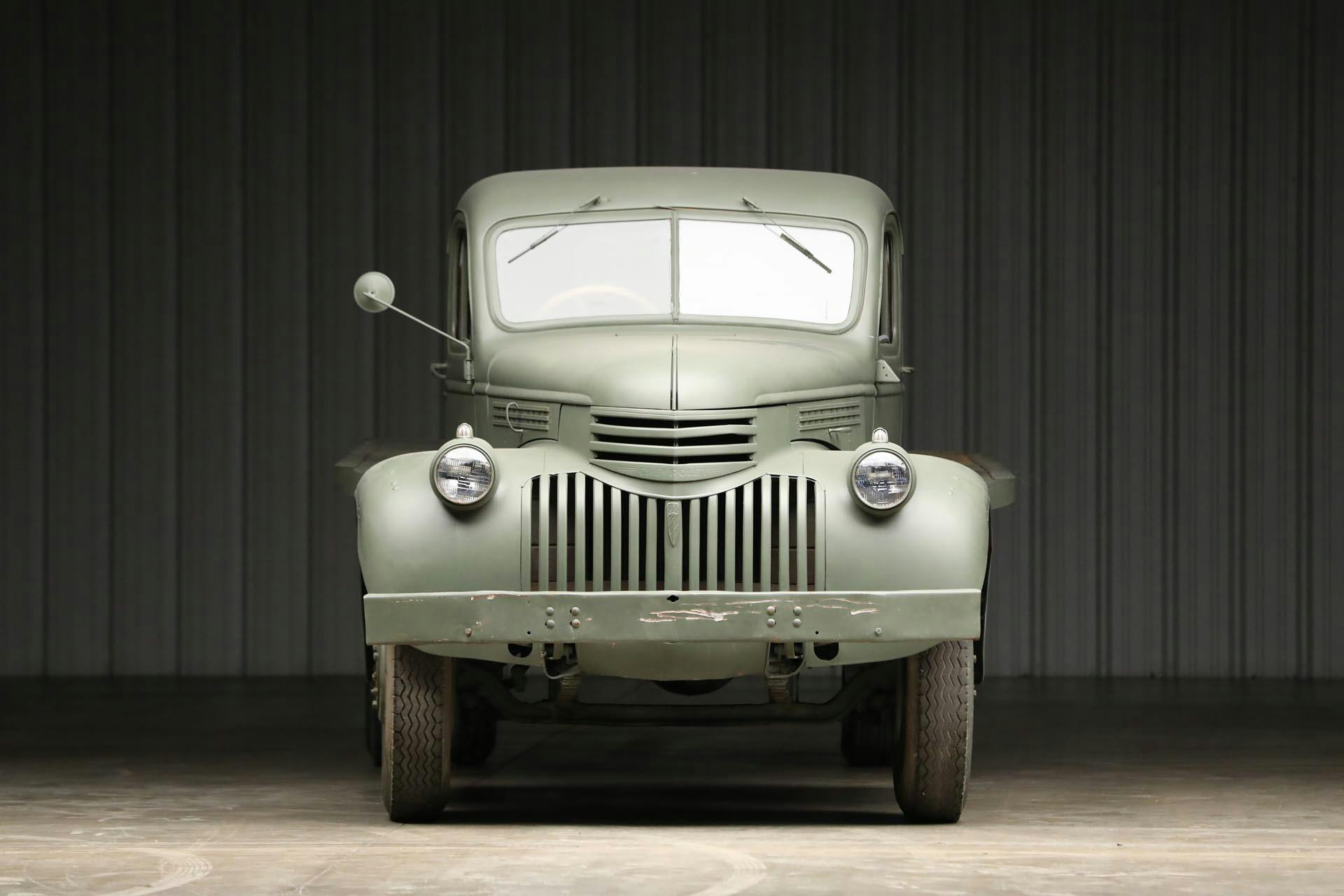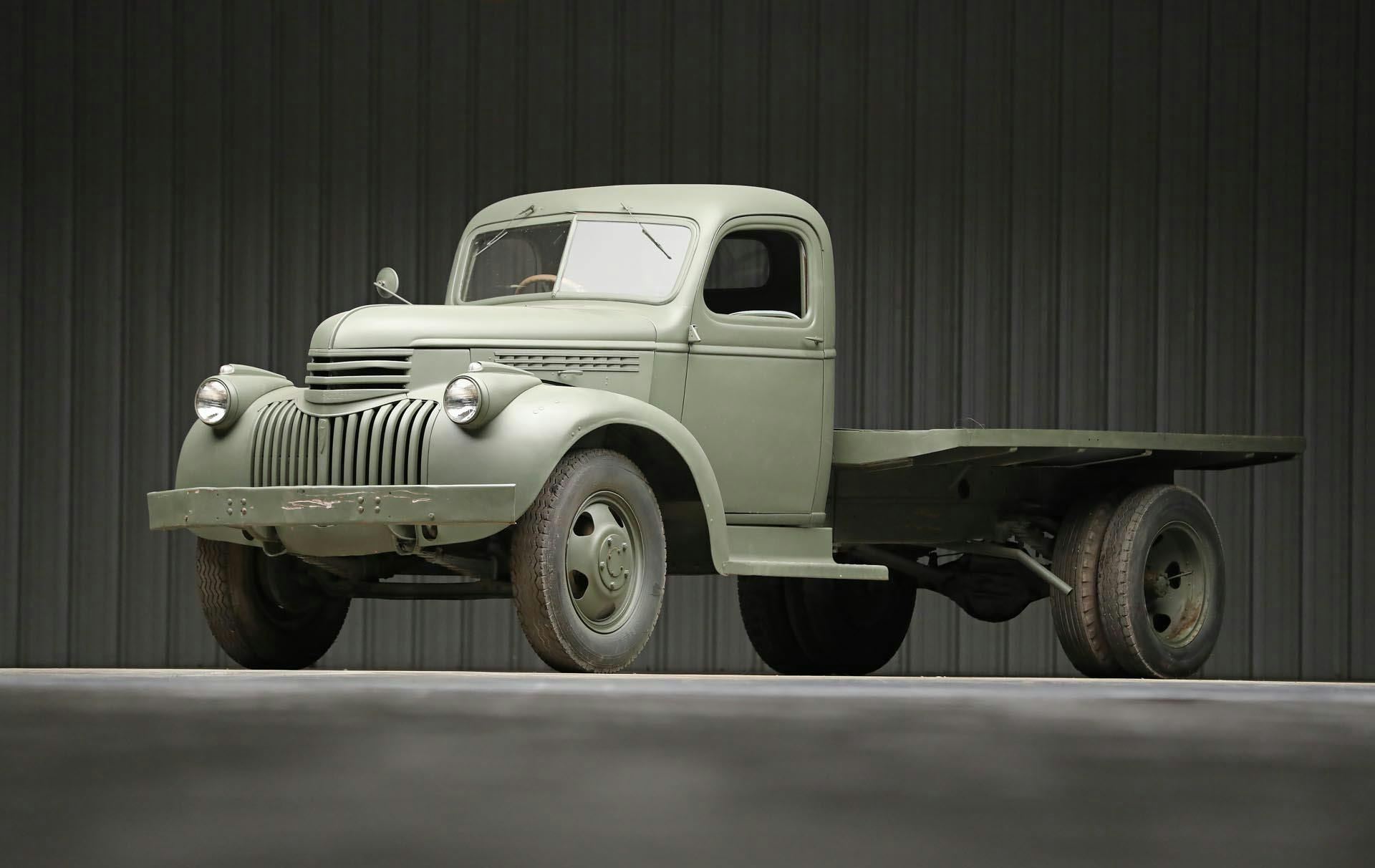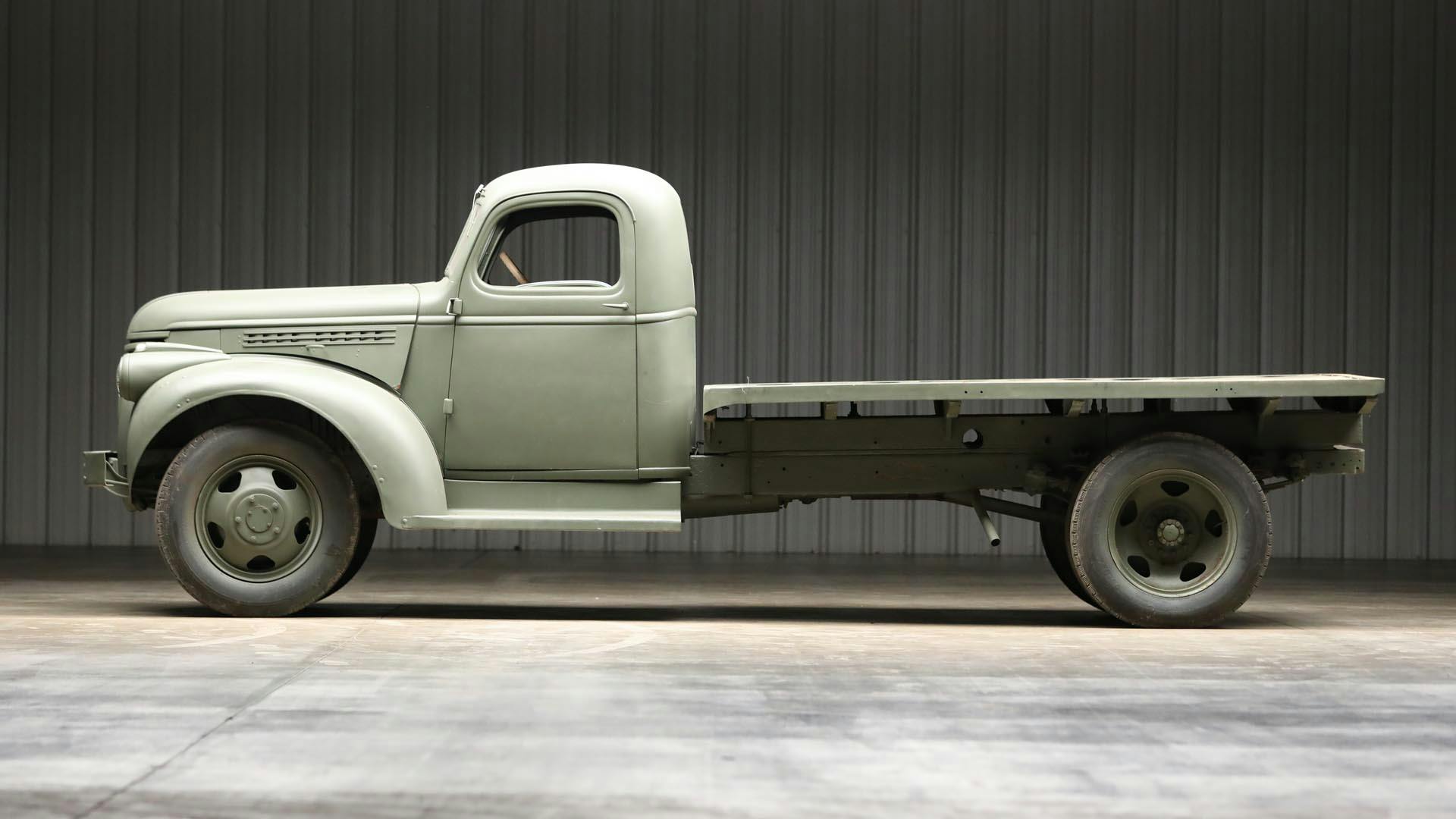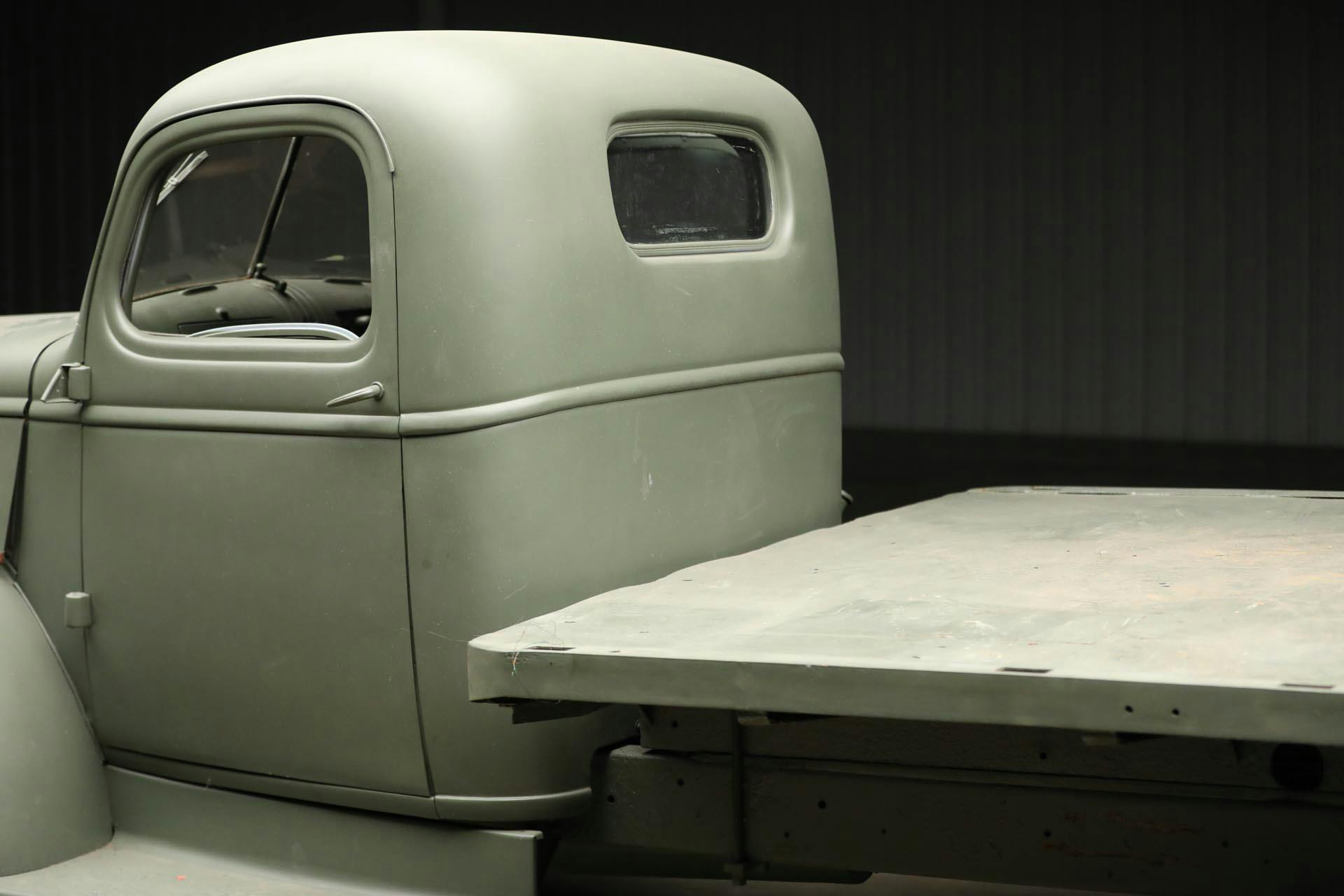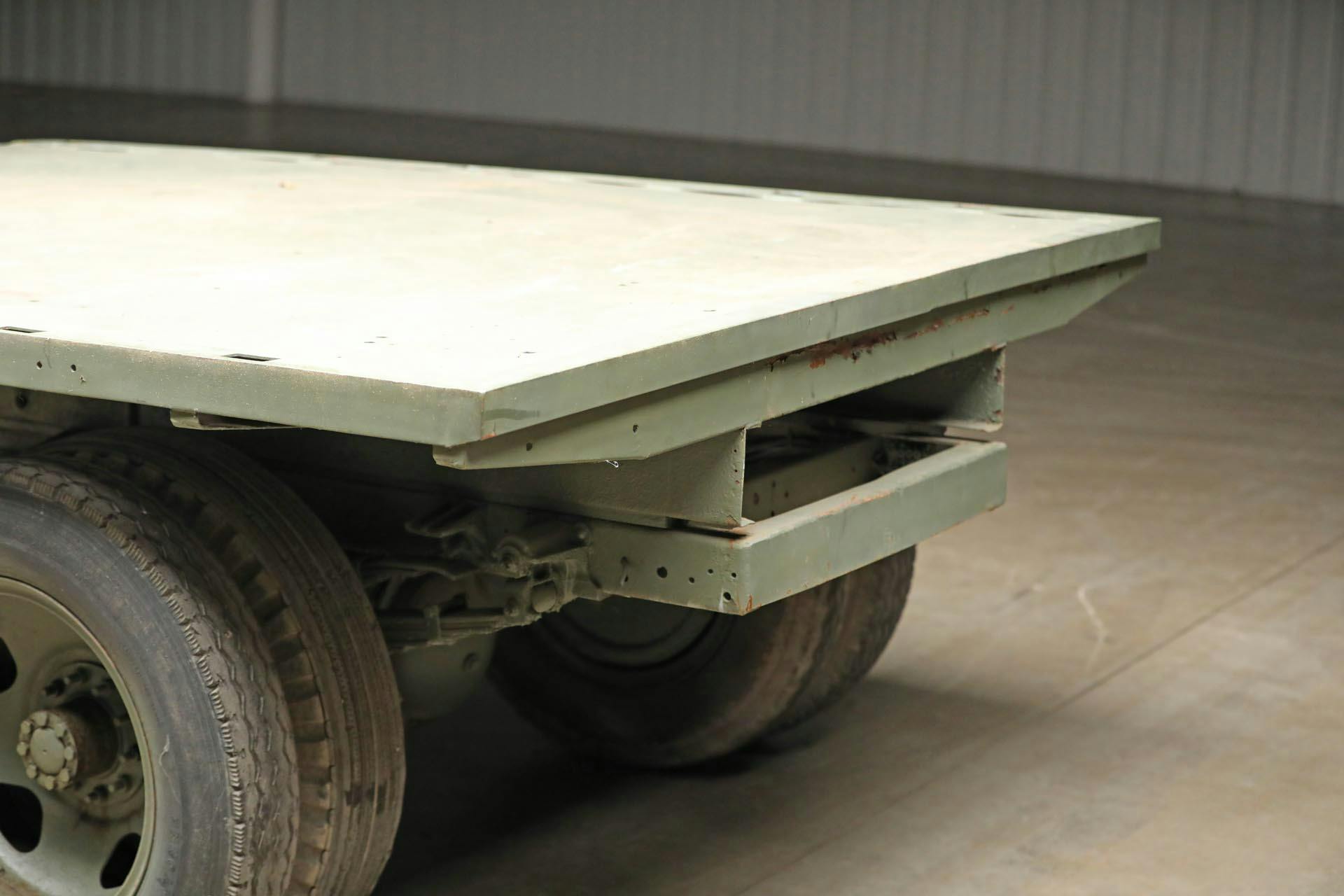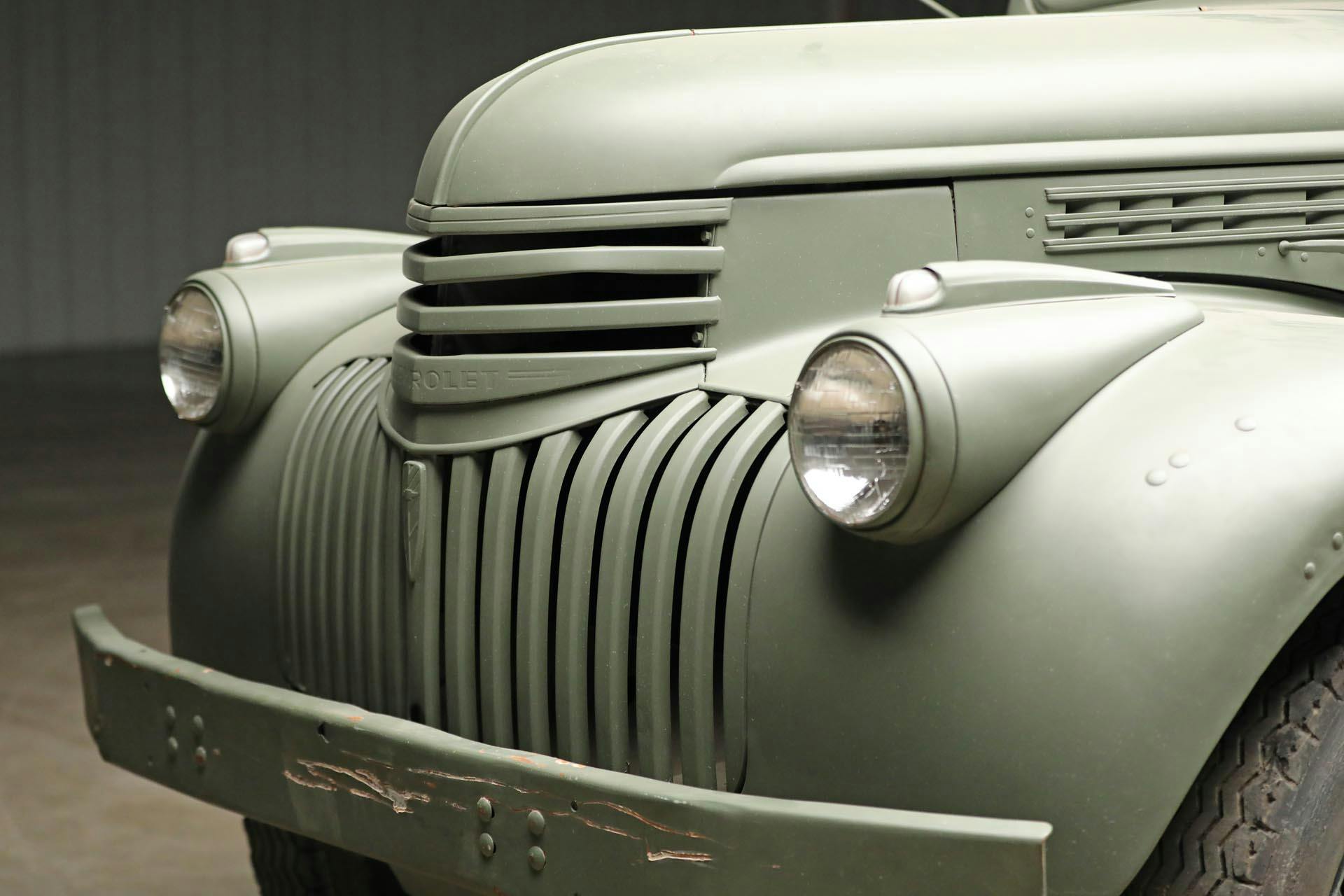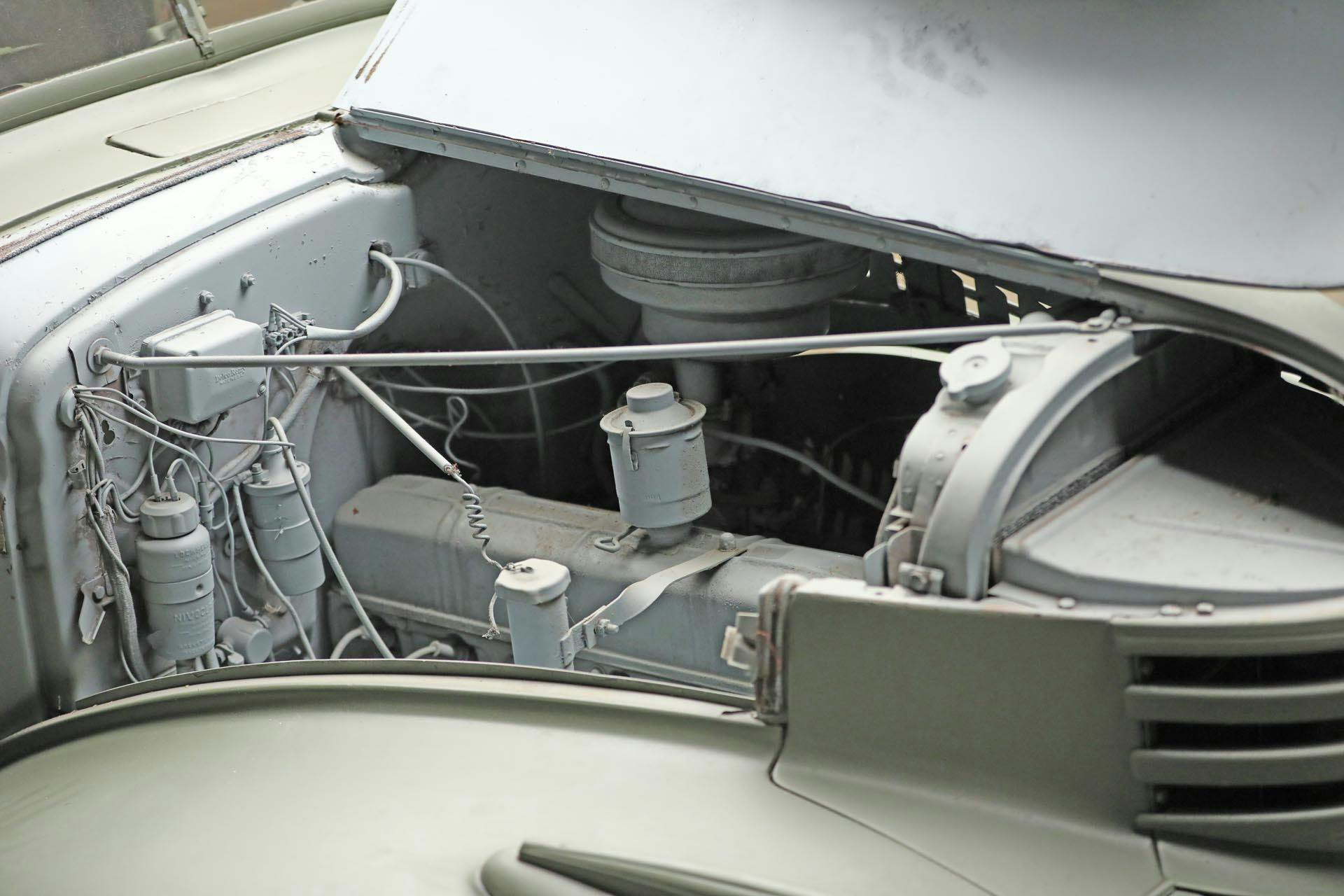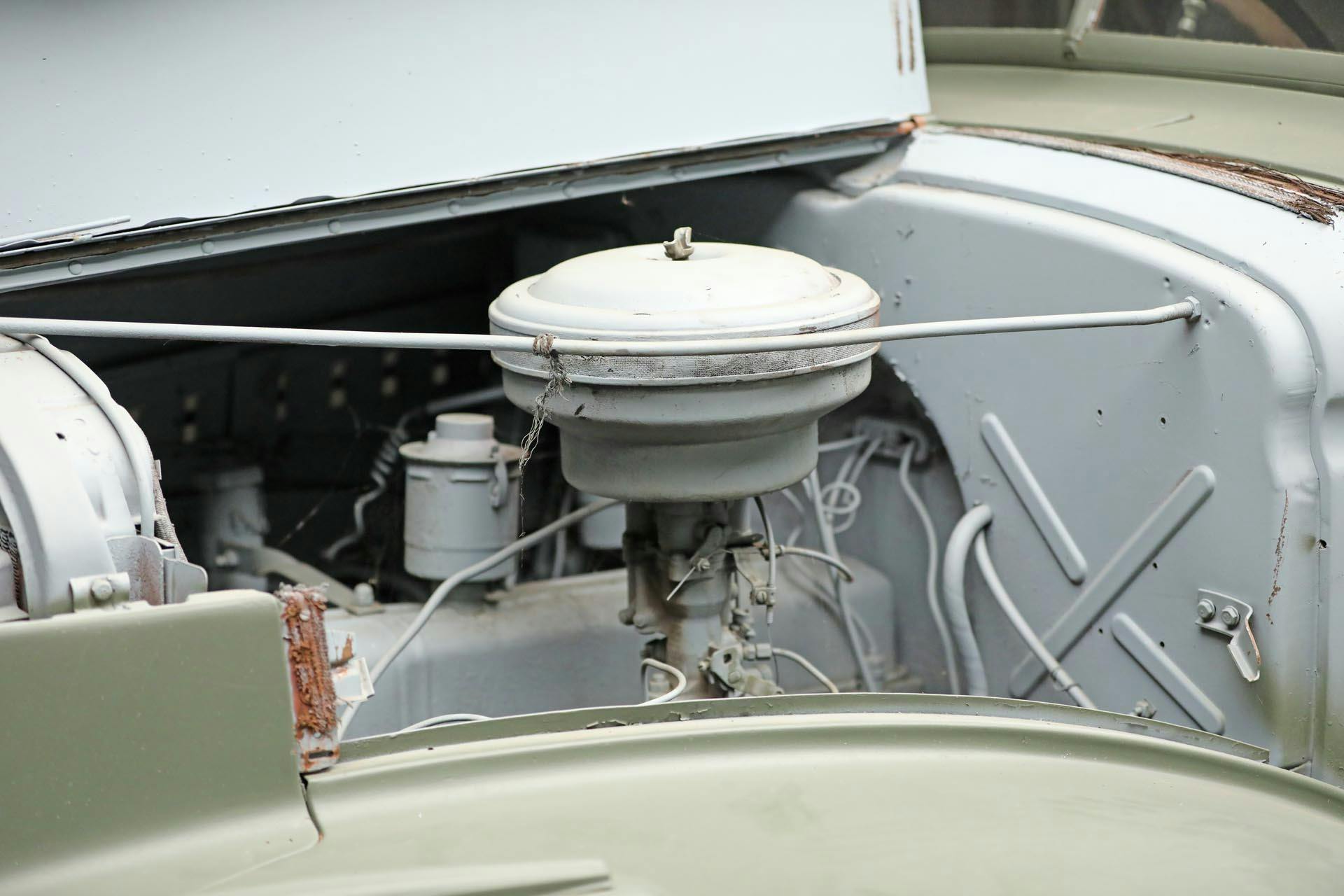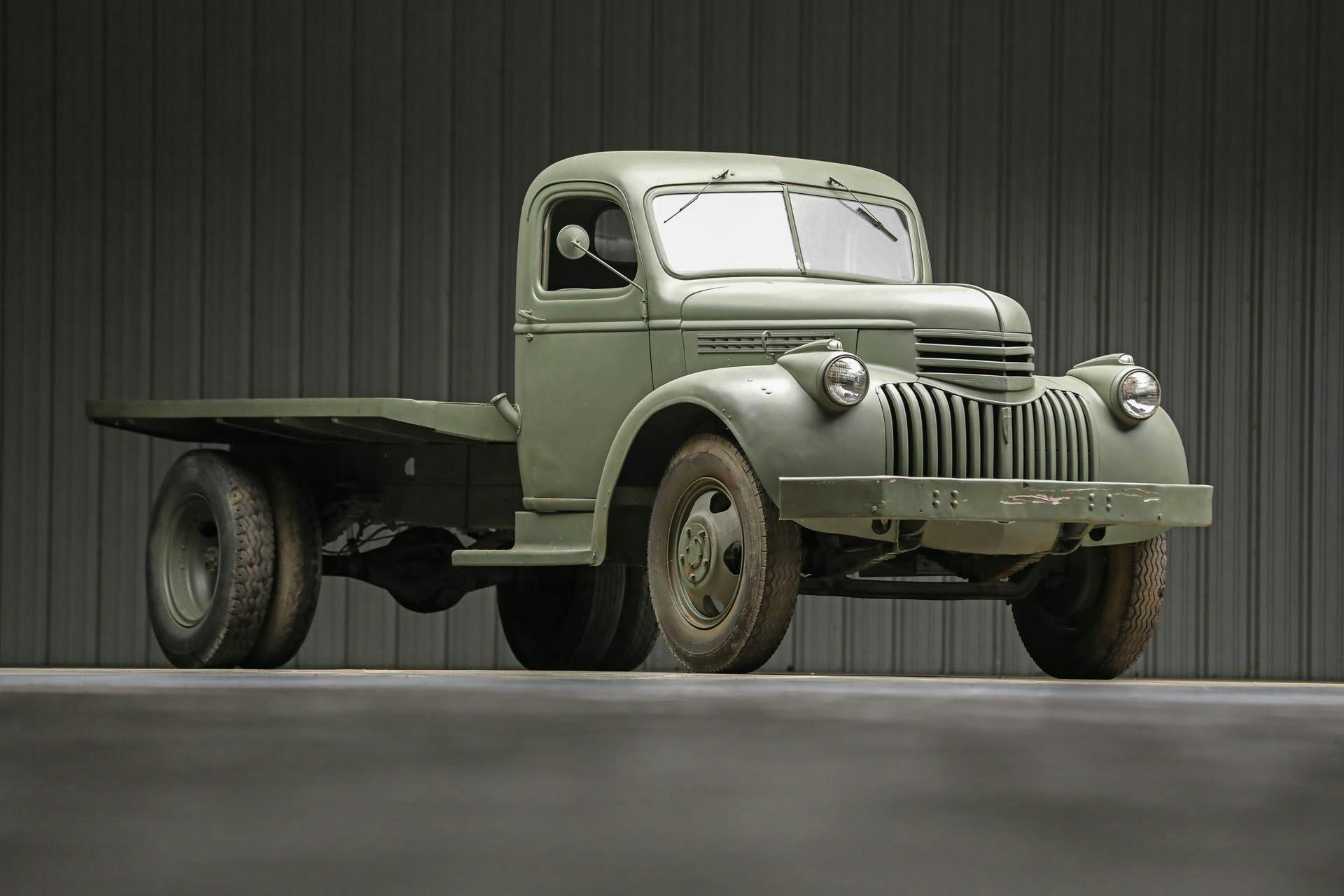Media | Articles
This humble ’41 Chevy is a WWII workhorse from Canada’s MCP output
Overshadowed by the $150,000 sale of General Patton’s Dodge command car, this 1941 Chevrolet 1543 GS pickup sold at a properly modest $6250 at Worldwide’s Auburn auction last weekend. Clad in a panoply of flat-olive steel, it’s the unassuming type.
Nonetheless, the truck has a fascinating history. One of Canada’s many so-called Modified Conventional Pattern (MCP) vehicles produced for World War II, its footprint traveled far beyond the boundaries of its birthplace in Oshawa, Ontario. Oshawa is the province’s mid-sized “Motor City” and home to GM’s recently defunct Canadian assembly plant.
In 1940, the Miracle of Dunkirk (Operation Dynamo) saved hundreds of thousands of lives by evacuating Allied soldiers out of northern France. It also taxed Great Britain’s armament count severely. Piles of vehicles, weapons, and supplies were left behind, ruined in scrap all over western France, after the Allies made their final retreat over the Channel back into England. Shortages ensued, and not long after pressure started to mount on the entire Commonwealth of Nations to recoup these losses, fast.
Luckily for the Brits, the seasoned Canadian factories were already attuned to operating at high levels of production. Tax advantages and import laws meant that General Motors, Ford, and Chrysler subsidiaries were all long established in Canada, and their initial MCP vehicles were by all accounts a reliable bunch of pre-existing commercial or civilian exports with necessary tweaks for military use. Although initially penned as a temporary venture, MCP production continued through 1942, until the more nuanced Canadian Military Pattern (CMP) designs could effectively take over as common standard during the latter half of the conflict.
Available figures suggest that over 800,000 vehicles came from GM, Ford, and Chrysler of Canada during the war—a little over 300,000 of which were MCPs. That’s incredible in its own right, considering so much of the contemporary workforce left after enlisting, nearly 10 percent of the entire Canadian population at that time. Like many other facilities, Oshawa relied heavily upon female workers to fill up the assembly lines.
Marketplace
Buy and sell classics with confidence
This ’41 Chevy 1543 GS pickup is said to have originally landed in the hands of Britain’s Royal Air Force. The weight displacement front to rear, combined with a dually rear-wheel drivetrain, makes this rig most effective under heavy load on hard surfaces. Its most obvious cosmetic flaws seem to be some scarring in the front bumper and a couple of tears in the seat—small grievances, really, that would suggest this pickup likely never left an airfield tarmac once it arrived at its destination.
Power comes from Chevrolet’s tried-and-true 216 Stovebolt Six and four-on-the-floor transmission. The sound-over-speed duo could squeeze out all 90 horses to reach 50 mph at the top end, making it highly unlikely that any of the Tommies clamored to get behind the wheel when rushing to race one another down an open runway.
From a collector’s standpoint, 3-ton MPCs are an important piece of WWII history. For inexperienced collectors seeking entry into the military hobby, it wouldn’t be a bad place to start, either. Prices are fair, and maintenance costs on these pickups would be reasonable, considering most of the parts are interchangeable with other factory commercial and civilian haulers of the era.
While this pickup is lacking the esteem of the name (someone like a MacArthur, or Patton) to elevate itself into WWII lore, it exists as a rare well-conditioned example that represents the many trucks of its kind which did not survive to the present day. It was once in the hands of resilient workers, fighters, and patriots, and that’s worth honoring.
